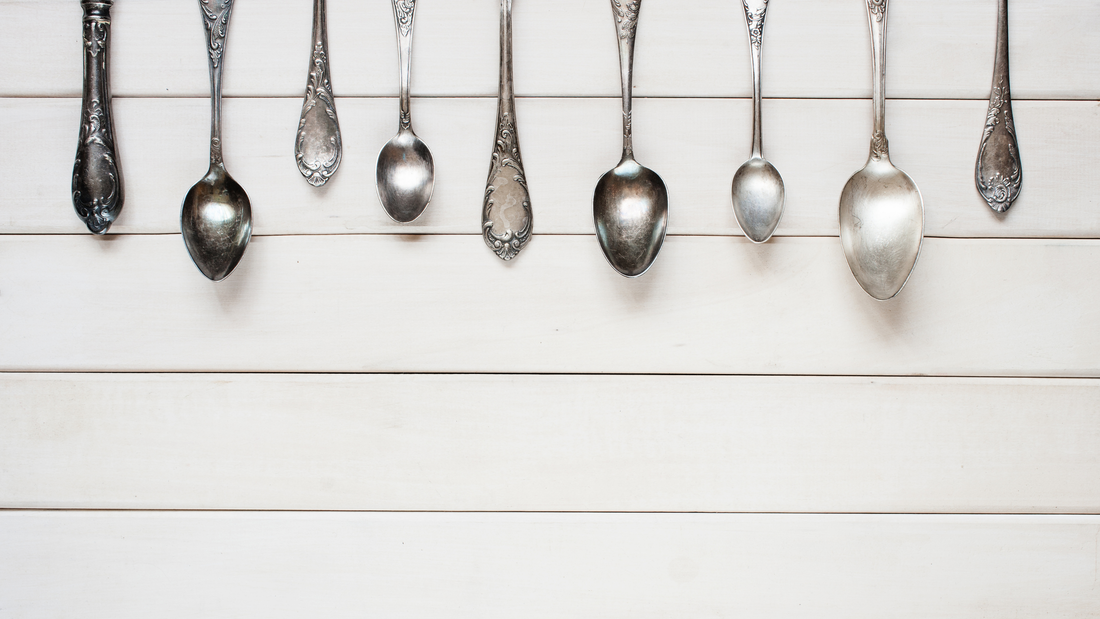|
7/9/2019 0 Comments The Spoon TheoryChristine Miserandino and her best friend were sat in a cafe in 2003 talking about Lupus and how it affects day to day tasks. During this discussion, Christine took her friend through a day in the life of someone with a chronic illness, giving her a selection of spoons from the cafe to start the "day" and taking them away as and when daily tasks were completed. A growing number of people with stamina difficulties, such as those with ME, fibromyalgia, Ehlers Danlos syndrome and mental health problems, use spoons to quantify how they are feeling on a given day. It's not really possible to measure energy levels scientifically but this unit of measurement - numbers of spoons - is a fun explainer. (1) I have used the spoon theory countless times to help people understand why there are some things I simply wont be able to do one day but can do another day. Spoons are a measurement of energy and ability Here's an example of my normal working day: 12 spoons to start the day 6/7am - Waking up slowly (it takes about 30-45 minutes for my body to stop being numb and for the aching to reduce) 7.30/7.45am - Getting out of bed and getting into the clothes I have laid out the night before = minus 1 spoon Putting makeup on costs 1 spoon so this is sometimes skipped. Breakfast - minus 1 spoon 8.15-8.40am - Driving to work = minus 1 spoon So, all before 9am I have potentially used 4 of my 12 spoons On a day in the office: "I work in an office job, however, I am often out of the office in meetings with clients and when I am I have to spend more spoons than I’d like to." 9am- Start work, reply to emails and write my to do list. Between 10am-1pm I would probably have spoken to several clients, typing on my computer and talking on the phone = minus 1 spoon I may have made a round of teas or coffees in this time too = minus 1 spoon Lunch- if I walk into town for my lunch break =minus 2 spoons 2pm- Back into work and this may entail going up and down the stairs to talk to a different department and maybe a Web meeting with a client in a room upstairs = minus 2 spoons 5.30pm Drive home = minus 1 spoon All 12 Spoons used Once home from work: Fortunately, I live with my parents and my lovely mum cooks most nights (in the case that I would need to cook minus 1 spoon for a quick and easy meal) Before I go to bed, I will shower (if I wash my hair minus 2 spoons, one for washing and one for drying) and choose an outfit for the next day and then go to bed = minus 1 spoon This day leaves me with a total of 16 out of 12 spoons spent if I don't plan for it. Meaning the next day I will start with only 8 Spoons. . Adapting my day by taking out the non-vital activities for example; doing my makeup, breakfast, making tea and coffee, walking into town at lunch, making dinner - saves me 6 spoons and leaves me with spare at the end of the day. If it's been an easy day and I have used the minimum spoons possible I will go to the gym after work = minus 2/3 spoons Something that I found hard to come to terms with is that; when managing a chronic illness you do have to plan out your day to day life. Learning how your body uses energy is vital. Everyone is affected differently and this is just an example of my experience. I would definitely recommend sharing the Spoon Theory with loved ones to help them understand how your energy levels can vary day to day. Also, planning out your day so that you have spoons left over, like a "rainy day fund", in case of emergency situations. References 1.https://www.bbc.co.uk/news/blogs-ouch-22972767
0 Comments
Leave a Reply. |
